|
Most Deadheads pan the band's debut, saying it sounds nothing like their
'classic' sound and they hadn't yet grown into their unique style. This
is true, and definitely the main reason for me liking it quite a bit.
See, when the Grateful Dead formed out of several different shards and
smithereens of their former bands, they weren't exactly driven together
by the will to experiment and come up with a radically new type of music.
They were nothing but a bunch of cool Californian guys with some playing
experience behind their backs - Garcia with more of a folky background;
Lesh, if I'm to believe the liner notes, from "electronic music"
background, which pretty much makes him the only 'experimental' element
back then; and the others from various rock bands. And at this point,
the band's musical direction was primarily indicated by Pigpen, with his
love for blues and R'n'B and cool Hammond organ tone which is actually
more audible on this particular record than Jerry's guitar.
And I like it. It is definitely untrue that the album sounds nothing like
their further stuff. Well, it definitely sounds nothing like the subsequent
two studio albums, where the Dead plunged headlong into lethargic psychedelia.
But many of the tunes on here aren't that far removed from their country/folk
"retro-fication" on Workingman's Dead and later on; not to mention
that more than half of the songs on here made it into the regular Deadshow,
and stayed there at least until the passing of Pigpen, and some even further.
The crucial difference is they rock, and they rock much more than anything
the Dead have created ever since.
The very opening of the record, those distorted electric chords and the
slightly fuzzy organ tone of 'The Golden Road (To Unlimited Devotion)',
show that pumping up the energy level was by no means a technique unknown
to the Dead in those early days. In fact, when two rocking guitars, a
rocking organ, and loud, almost "brawny", harmonies all join
together, it results in a wall-of-sound effect that is radically opposed
to the 'classic' thin, wimpy Deadsound. You can find similar melodies
all over their career, but a similar sound? Only on a particularly energetic
live night, I guess.
Another thing is that on this record, they're no sworn enemies of fast
tempos. 'Beat It On Down The Line' is lively, friendly, and toe-tappy
all over, and still rendered quite "Deadly" because of Pigpen's
identifiable organ playing. And I totally dig their reworking of 'Sitting
On Top Of The World', here turned into a fast, frantic shuffle which makes
its point in a breathtakingly short span of two minutes, replete with
a nimble solo from Mr Garcia (I presume), shining in all of its Chuck
Berry-ish glory. 'Cold Rain And Snow' and 'New New Minglewood Blues' are
slightly less involving in terms of power, but more interesting from a
melodic point of view, especially the former with its optimistic organ
'interludes' and stuff - no wonder it readily made it back into their
concert set when they started moving away from psychedelia.
Of course, the record isn't free of some of that "sterile" approach
to the blues that is already rearing its ugly head in the Deadcamp. 'Good
Morning Little Schoolgirl' is much shorter here than it is on any of the
band's live records, but actually feels longer than some of the better
live versions, because it emphasizes Pigpen strutting his stuff rather
than tight interplay between the band members. And their rendition of
the folkie ballad 'Morning Dew' I find myself respecting much more than
actually falling for - which supposedly means they don't manage to capture
the song's tragic essence, even if they try to. Heck, I'll take the Rod
Stewart, or even the inventive-as-hell Nazareth version of the song, over
the Dead version any day.
That said, the best treat comes at the end in the form of the ten-minute
'Viola Lee Blues'. Now that's a real monster of a jam if there ever was
one. Go ahead Deadheads and crucify me, but the Dead never, and I repeat,
never did a more murderous instrumental sequence in their entire career
than the steam-raising crescendo in the middle of this tune. It doesn't
hint at much when it begins, just a standard riff-driven blues-rocker
with an occasional "initiation of a rock solo" that quickly
dissipates into oblivion, but then somewhere around the fourth minute
the Dead are starting to exercise in "math-rock", gradually
pushing up the valves and handles and spinning up the dials and blowing
up the pistons and increasing the tempo and playing more notes per second
and zooping up the bass fretboards and crashing the cymbals and inserting
splinters of funky rhythms and suddenly pushing Pigpen's psychedelic organ
riffs to the top of everything and then making Garcia solo with even more
aggression on top of these riffs and then Pigpen starts rising the volume
even higher and then Garcia breaks into an ass-kicking repetitive rock'n'roll
phrase and they start hitting higher and higher "stingey" chords
and going into trills and barrages of chords and then poof! - it is over.
Yeah, believe it or not, I just described (as best as I could) an actual
Grateful Dead jam which is not a 'Dark Star' or a 'The Eleven' by any
means.
Which leads us to the obvious conclusion - if you hate the Dead more than
filling in tax declarations, this is the only album of theirs that can
possibly impress you. But if you love the Dead more than the living, you
will probably be ready to join the chorus of those who are always ready
to point out how it is not a "true" Dead album. In fact, I'm
not even sure if they were stoned while recording it. And besides, it's
the only Grateful Dead album where you'll find a clean-shaven Jerry Garcia
looking at you from the front cover. If that ain't a reason for exchanging
your entire collection of dried butterflies for something musically-related,
I don't know what is.
(by George Starostin,
Only Solitaire)
|
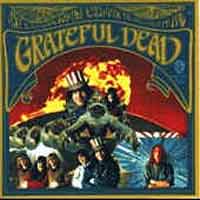







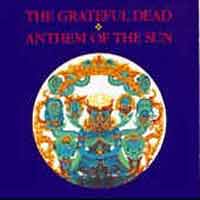
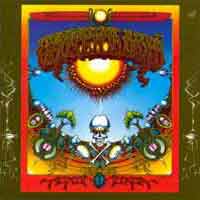
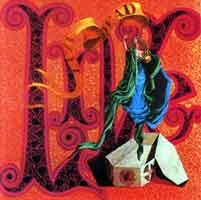
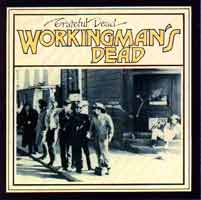
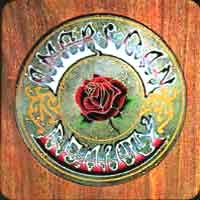
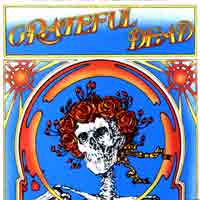
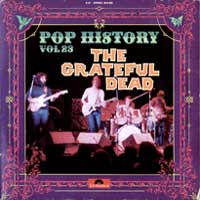

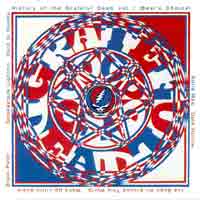
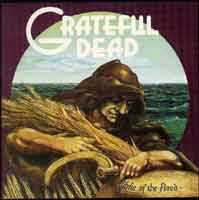
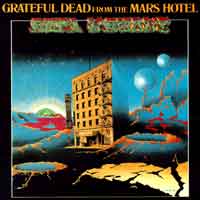
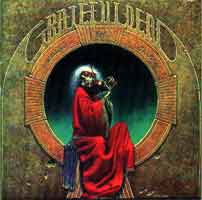
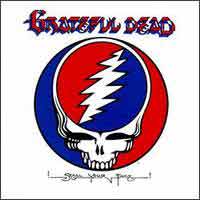
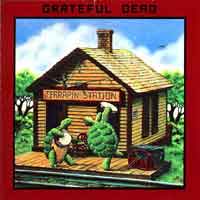
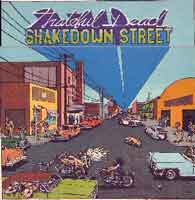
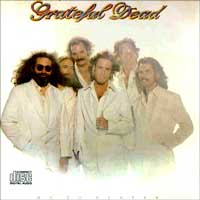
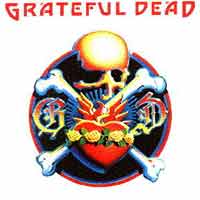
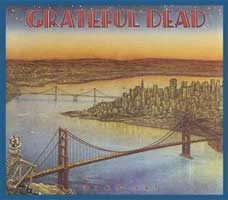
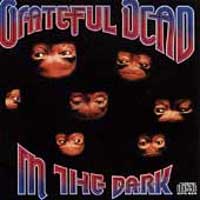
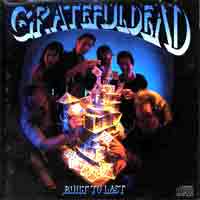
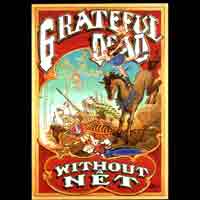
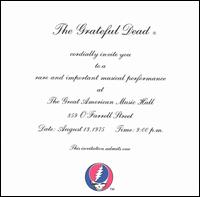
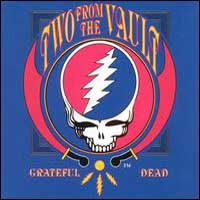
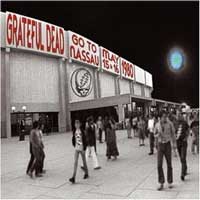
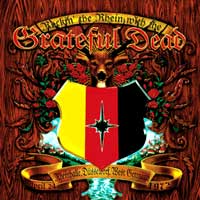
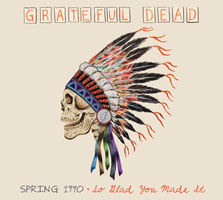
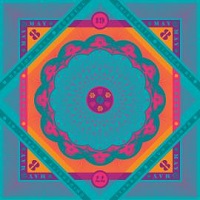
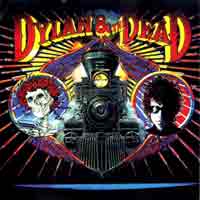
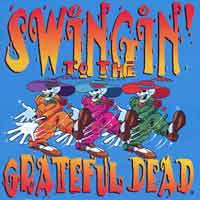
 Grateful Dead
Grateful Dead 